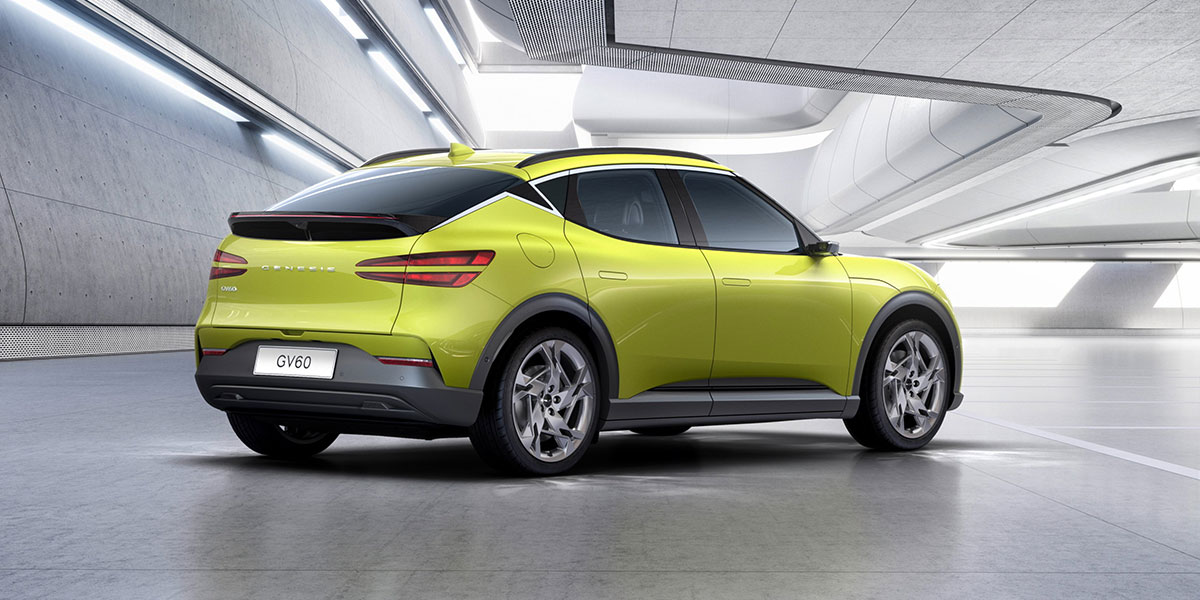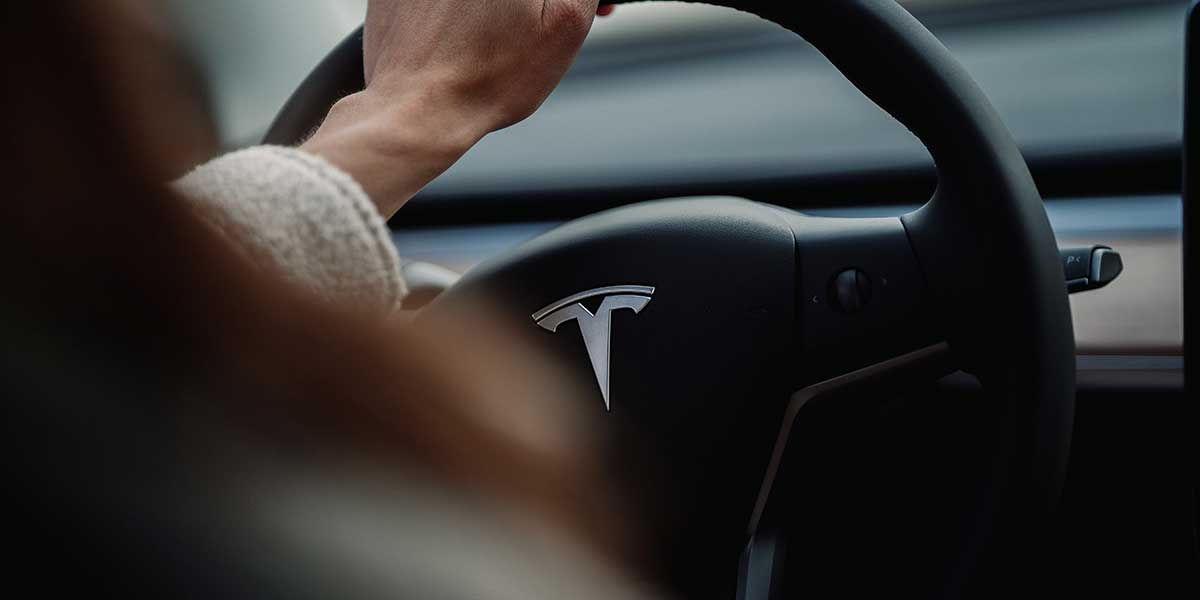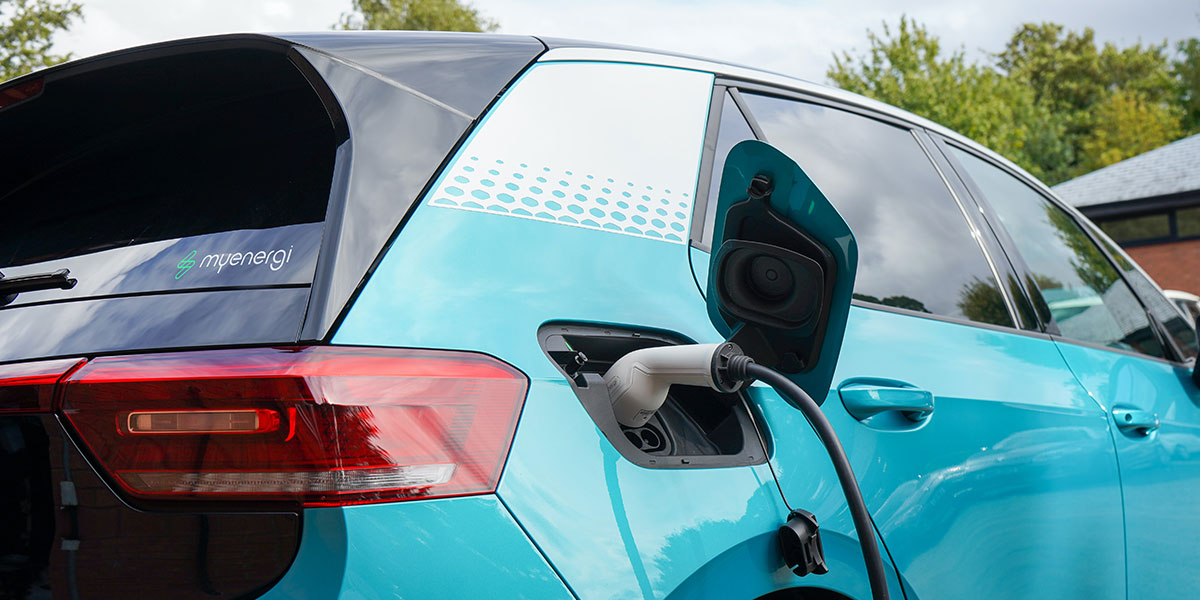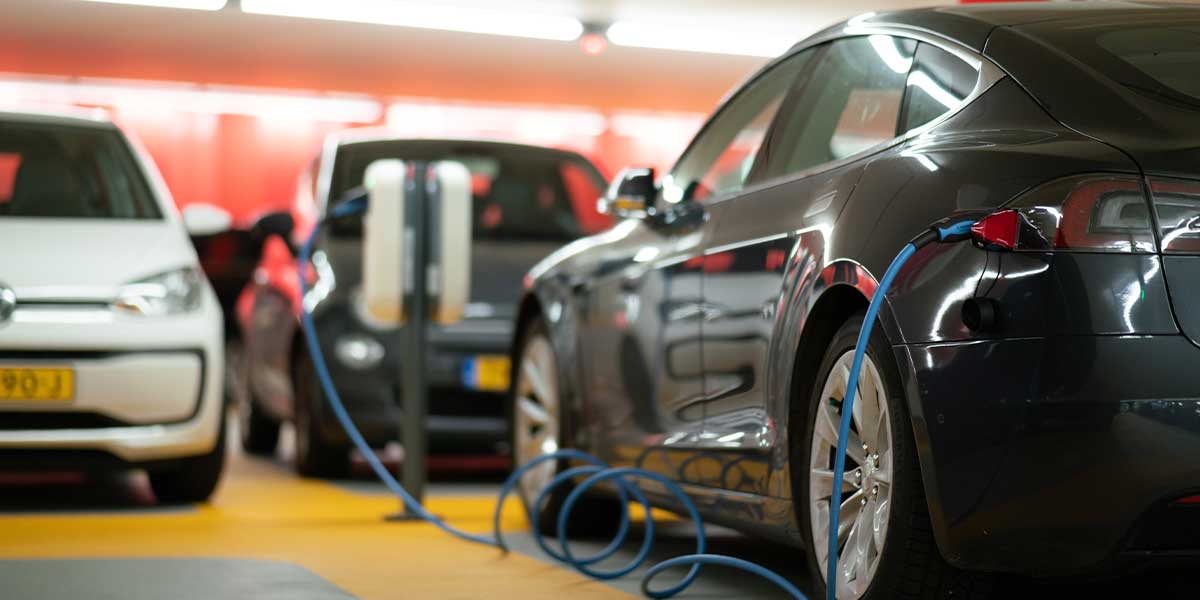The numbers say it all. At the start of 2025, over 1.4 million fully electric cars were registered in the UK. This accounts for just over 4% of all cars on British roads. Back in 2021, that figure was just 1.2%, meaning the number has more than tripled in just a few years. Safe to say, EVs are here to stay.
One thing that catches many new EV owners out? Insurance. It’s easy to assume car insurance for electric cars works the same way as petrol or diesel cover. Until you start looking at policies and realise that things like battery cover, charging cables and specialist repairs make a difference.
If you’re considering buying an EV or switching your insurance, this guide breaks down everything you need to know about finding car insurance for electric cars, without the faff.
What is electric car insurance?
Electric car insurance isn’t wildly different from standard insurance, but EVs come with a few quirks. The key differences?
- Battery cover – EV batteries aren’t cheap, and some policies don’t cover them if they’re leased.
- Specialist repairs – Fewer mechanics are trained to fix EVs, which means repairs can cost more.
- Charging equipment – Some policies protect charging cables, home charge points and even public charge mishaps (like if someone trips over your cable).
Because of these factors, EV insurance can be priced differently. Sometimes more, sometimes less, depending on the insurer and the model.
The bottom line? No matter what model you drive, having the right insurance matters. Whether it’s covering costly battery repairs, protecting your home charger or ensuring you’re not left footing the bill for third-party incidents, insurance for electric cars keeps you financially secure. With the growing number of electric cars on UK roads, insurers are adapting and offering tailored policies to give EV owners peace of mind. But it’s crucial to check exactly what’s covered before you commit.
The future of electric vehicles
With the 2030 petrol and diesel ban creeping closer, the transition to electric is well underway. The number of EVs on UK roads has tripled since 2021, and it’s only going up from here.
How does this affect insurance?
- More insurers offering EV cover – Specialist policies are now common.
- Cheaper premiums over time – As EVs become the norm, insurance prices will stabilise.
- More second-hand EVs available – This means lower purchase prices and, in turn, lower insurance costs.
- Government incentives – Perks like reduced Vehicle Excise Duty (VED) for zero-emission cars also make EV ownership more appealing.
Do insurers cover electric cars?
Yes. Most major companies, including Aviva, Direct Line and Admiral, offer car insurance for electric cars. Some providers even offer EV-specific policies, covering things like:
- Battery repairs and replacement
- Charging cable protection
- Breakdown cover with mobile charging
Own a Tesla, Polestar or Porsche Taycan? Some policies require repairs to be done at manufacturer-approved centres, so check the small print.
Types of electric car insurance cover
Not all car insurance policies offer the same level of protection, and that’s especially true for EVs. Whether you’re driving a budget-friendly Dacia Spring, a mid-range Kia EV6 or a high-performance Mercedes-Benz EQS Saloon, the type of cover you choose can make a big difference if something goes wrong.
Here’s a breakdown of the main options:
Third-party only (TPO)
- Covers damage to other vehicles and property.
- Won’t cover your own EV. So if you’ve spent serious money on a Tesla Model Y or a Polestar 2, this could leave you out of pocket.
TPO is the bare minimum level of cover required by law. It’s often chosen by drivers of older, lower-value cars where repair costs wouldn’t justify a pricier policy. But with EVs generally costing more than petrol or diesel cars, this level of insurance for electric cars isn’t always the smartest choice.
Third-party, fire & theft (TPFT)
- Adds theft and fire protection on top of third-party cover.
- Still won’t cover your own EV if you crash or it gets damaged in an accident.
TPFT gives some extra peace of mind, especially as EVs are becoming a bigger target for thieves due to their expensive batteries and high-tech features. For example, some models, like the Kia E-Niro Electric Estate and Hyundai Ioniq 5, have been flagged as attractive to thieves because of their keyless entry systems. If you’re worried about battery theft or fire damage, this policy at least offers a step up from basic third-party cover.
Comprehensive insurance
✔ Covers everything. Your car, other cars, theft, fire and more. Basically, total peace of mind.
✔ Best for EVs because of the higher cost of repairs.
Comprehensive insurance is usually the best option for EV drivers. With repair costs higher than petrol or diesel cars (especially if something goes wrong with the battery) it makes sense to have full cover.
Let’s say you own a Volkswagen ID.4 and someone scrapes it in a car park and drives off. If you only have TPO or TPFT cover, you’ll be paying for those repairs yourself. But with comprehensive car insurance for electric cars, your insurer steps in to cover the damage.
Why choosing the right cover matters
EVs in the UK range from £15,000 for budget models like the Dacia Spring to £100,000+ for luxury vehicles like the BMW i7. Or if you’re feeling really fancy, the Rolls-Royce Spectre starts at a cool £330,000.
No matter what you drive, getting the right level of cover is important. Your policy will depend on:
- The car’s value – A used Nissan Leaf might not need the same cover as a brand-new BMW iX SUV.
- How often you drive – Full coverage makes more sense if you’re racking up miles for work.
- Charging arrangements – If you rely on public chargers, cover for charging cables and accidental damage is worth considering.
With EV technology still evolving, repair costs remain higher than traditional cars, so opting for comprehensive cover is often the safest bet. A little extra on your monthly premium now could save you thousands later.
What extras can you secure on an electric car insurance policy?
EVs come with unique risks, so extra cover can make sense. Consider add-ons like:
- Battery protection – If your battery isn’t covered, a replacement could set you back £5,000–£10,000.
- Charging cable cover – Theft, damage and third-party liability (because tripping over a cable is a real risk).
- Home charger cover – Some insurers cover damage or theft of your wall-mounted charge point.
- Breakdown cover – Some providers now offer mobile charging if you run out of juice mid-journey.
Given the higher repair costs and specialist nature of EVs, checking your policy for these extras is essential. Whether it’s battery protection or charging equipment cover, having the right add-ons can save you money and hassle in the long run. A quick policy review now ensures you’re fully covered, before you need to make a claim.
How do you insure an electric car?
Insurance for electric cars is straightforward, granted you do the homework:
- Compare quotes – Some insurers charge a premium for EVs, so shopping around pays off.
- Choose the right coverage – Your policy should be based on the vehicle’s value and your individual needs.
- Provide detailed information – You’ll need to disclose relevant information about the car, including battery type and charging requirements. Our advice? Be as thorough as possible when insuring electric cars.
- Check insurance extras – Read the fine print and make sure you’re clear on coverage for extras like the battery and cables.
- Declare modifications – Software updates and aftermarket chargers can affect premiums.
Does it cost more to insure an electric car?
It depends on the model. Some EVs cost more to insure because of battery replacement costs and specialist repairs. Others are cheaper, thanks to fewer moving parts and lower accident rates.
Policies can creep up due to:
- EV battery replacement costs – These can surpass £10,000 if not under warranty.
- Specialist repairs – Not all garages can fix EVs, so some insurers charge more.
- Limited data for insurers – Insurance relies on statistics, and with EVs still relatively new, there’s less data available compared to petrol and diesel cars. The good news? As more EVs hit the road, insurers gain a better understanding of risks and repair costs, which should lead to more competitive premiums in the future.
Ways to save on EV insurance
- Go for a model with lower repair costs – A Fiat Grande Panda or Citroen e-C3 costs less to insure than a high-end EV.
- Improve security – Driveway parking and steering locks can reduce premiums.
- Increase voluntary excess – A higher excess can lower monthly payments.
Electric car insurance should stabilise as EVs become the norm, just as it does with petrol and diesel cars. With more trained mechanics, better parts availability and insurer competition, premiums will likely become more affordable over time.
Financing an electric vehicle
There’s no sugarcoating it – EVs cost more upfront. While running costs are lower (no fuel, fewer mechanical issues and cheaper road tax for starters) the initial price tag can feel steep. That’s where car finance helps make EV ownership more accessible.
Here’s a look at your options:
PCP (personal contract purchase)
PCP offers lower monthly payments because you’re only paying for the car’s depreciation, rather than the full value. At the end of the term, you can buy the car outright, return it or part-exchange it for a newer model.
- Lots of flexibility makes PCP ideal for EV drivers who like to upgrade as battery technology improves. It’s also great for models like the Tesla Model 3 or Porsche Taycan, where residual values tend to stay high.
HP (hire purchase)
HP spreads the full cost of the car over monthly instalments, so by the end of the term, you own the vehicle outright. No balloon payment required. Monthly payments are higher than PCP but there’s no mileage limit and you won’t need to decide whether to hand the car back.
- If you’re planning to keep an EV long-term, HP makes sense for reliable models like the Mini Electric or Volkswagen e-Up.
Leasing
Leasing is like a long-term rental, with fixed monthly payments and no option to buy at the end. Since EV technology is evolving quickly, leasing allows you to upgrade to a new model every few years without worrying about depreciation.
- Great if you want to experience the latest tech, like the Renault 5 Turbo 3E, Range Rover EV and BMW iX3 2025, without committing to ownership.
Government incentives and grants
The UK government offers various incentives to make EV ownership more affordable. These include:
- OZEV electric vehicle chargepoint grants – Get up to £350 or 75% off the cost of installing a home charger.
- Salary sacrifice schemes – Employees can save on an EV by leasing through their employer, thanks to tax-efficient salary sacrifice schemes.
- Company car tax savings – EVs attract a much lower Benefit-in-Kind (BiK) tax rate (currently 2%), making them a cheaper option for company car drivers compared to petrol or diesel models.
- ULEZ and Clean Air Zone exemptions – Electric vehicles are exempt from Ultra Low Emission Zone (ULEZ) charges and Clean Air Zones (CAZ).
With more financial incentives and falling EV prices, switching to electric is becoming more cost-effective, especially with the right finance plan.
Affordable car finance with My Car Credit
At My Car Credit, we help drivers secure affordable finance for EVs, whether you’re after PCP, HP or leasing options. With access to a wide panel of lenders, we help match you with a finance deal that fits your budget. Thinking about going electric? We’ll guide you through the process, so you can drive away in the right EV without overstretching your finances.
Partner with us and you’ll get:
- Competitive rates from trusted UK lenders
- A hassle-free online application
- Quick decisions and flexible repayment options
Take the hassle out of EV financing
With over 1.4 million electric cars now on UK roads, EV ownership is no longer niche. As the market expands, insurance options are becoming more competitive. Checking battery cover, comparing quotes and understanding how EV repairs affect premiums will help you secure the right protection without overpaying.
Looking to finance an EV? My Car Credit offers flexible options to help spread the cost. Our friendly team is here to answer all your questions about finance agreements, electric car insurance and more.
Apply online today and start your electric journey with confidence.
Frequently asked questions about car insurance for electric cars
What is the best insurance for electric cars?
A comprehensive policy usually offers the best protection. Compare quotes to find a good deal and select coverage based on the vehicle’s specs and usage.
Can you insure an electric car without battery cover?
Yes, but battery repairs are costly. Full cover reduces financial risk.
Does my insurance cover charging cables?
Some electric car insurance policies do but it’s always worth checking. Theft and accidental damage may not be included.
Other helpful guides
8 Benefits of Getting an Electric Car on Finance
Electric Car: Lease vs Buy – Which is Best?
Electric Car FAQs – Where to Charge?












